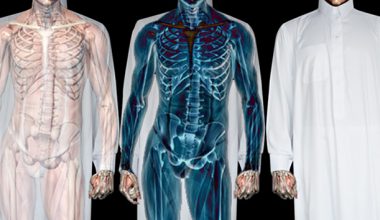 A large population-based study from Finland has shown that being unmarried increases the risk of fatal and non-fatal heart attack in both men and women whatever their age. Conversely, say the study investigators, especially among middle-aged couples, being married and cohabiting are associated with "considerably better prognosis of acute cardiac events both before hospitalization and after reaching the hospital alive."
A large population-based study from Finland has shown that being unmarried increases the risk of fatal and non-fatal heart attack in both men and women whatever their age. Conversely, say the study investigators, especially among middle-aged couples, being married and cohabiting are associated with "considerably better prognosis of acute cardiac events both before hospitalization and after reaching the hospital alive."
The study, published in the European Journal of Preventive Cardiology, a journal of the European Society of Cardiology, was based on the FINAMI myocardial infarction register data from the years 1993 to 2002.(1,2) The study included information on people over the age of 35 living in four geographical regions of Finland. All fatal and non-fatal cardiac events – known as acute cardiac syndromes (ACS) – were included and cross-referred to the population database. "Our aim was to study the differences in the morbidity and prognosis of incident acute coronary syndromes according to socio-demographic characteristics (marital status and household size)," said the authors.
The register recorded 15,330 ACS events over the study period of ten years, with just over half (7703) resulting in death within 28 days. Events occurred almost equally among men and women. However, the analysis also showed that the age-standardized incidences of these ACS events were approximately 58–66% higher among unmarried men and 60–65% higher in unmarried women, than among married men and women in all age groups.
The differences in 28-day mortality rate were even greater. These 28-day mortality rates were found to be 60–168% higher in unmarried men and 71–175% higher in unmarried women, than among married men and women.
For example, the 28-day ACS mortality rate in 65-74 year old married men was 866 per 100,000 persons per year, but 1792 per 100,000 per year in unmarried men. This rate did not differ according to previous marital status.
Similarly, mortality rates among 65-74 year old married women were 247 per 100,000 persons per year, but 493 per 100,000 when the woman was unmarried. Statistically, the figures represented a 28-day "case fatality" rate of 26% in the 35-64 year old married men, 42% in men who had previously been married, and 51% in never-married men. Among women, the corresponding figures were 20%, 32%, and 43%.
Consistent with this finding, the case fatality rate of 35-64 year old single men and women was higher than that of those living with one or more people.
According to the authors' background to the study, being unmarried or living alone is known to increase total and cardiovascular mortality and cardiovascular disease incidence. However, many of these previous studies have included only men in their analysis, with missing data on women and older age groups.
Why should single living or being unmarried be associated with such a greater susceptibility to coronary events, and particularly fatal events? The authors suggest several possibilities:
- Differences in the prevalence of traditional cardiovascular risk factors. "We cannot exclude the possibility that persons with poor health status may be more prone to staying unmarried or getting divorced," the authors state.
- Married people may be better off, have better health habits, and enjoy higher levels of social support than the unmarried, which will all promote their overall health.
- Better prospects in the pre-hospital phase because of earlier intervention. "It may be assumed that resuscitation or calling for help was initiated faster and more often among those married or cohabiting," say the authors.
- Better treatment once in hospital and after discharge. "We found that a larger proportion of married and cohabiting men received reperfusion therapy at acute stage which may contribute to their better survival after hospitalization. Lower adherence to secondary preventive medications (aspirin, statins, beta-blockers, angiotensin converting enzyme inhibitors or angiotensin receptor blockers) among the unmarried may have an adverse effect on long-term prognosis," they add.
That being said, however, lead author Dr. Aino Lammintausta from Turku University Hospital in Finland also notes that these differences in prognosis cannot be fully explained by differences in treatment-seeking time or access to effective therapy. The socio-demographic differences reflected in the study's results are a "considerable population health problem," she said, which warrants further research to explain.
– European Society of Cardiology
The European Society of Cardiology (ESC) represents 80,000 cardiology professionals across Europe and the Mediterranean. Its mission is to reduce the burden of cardiovascular disease in Europe.
Featured Image: Johanna Ljungblom – Inside Image: Benjamin Earwicker







